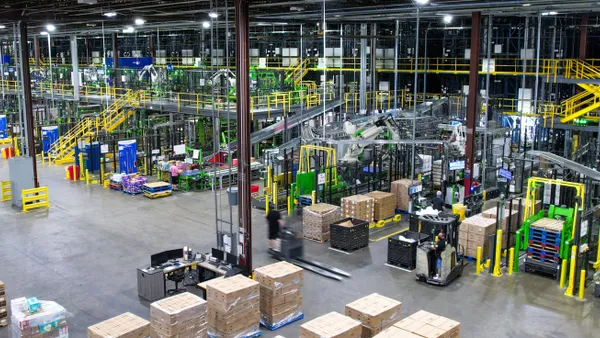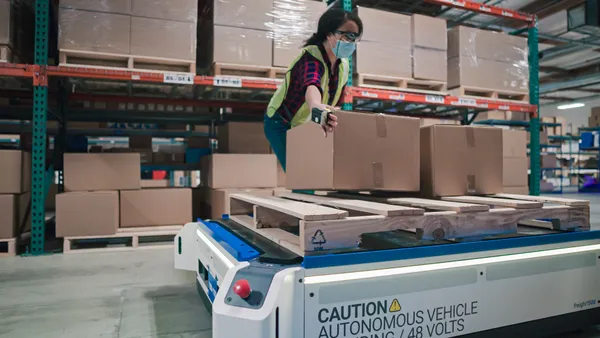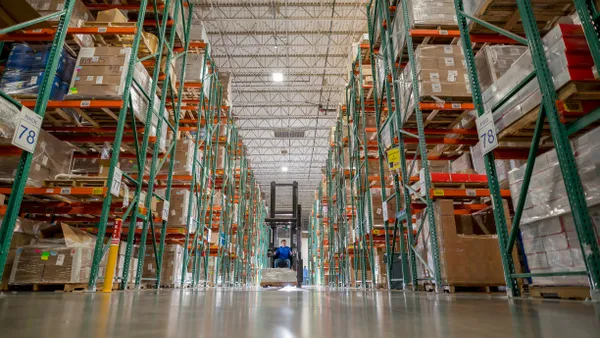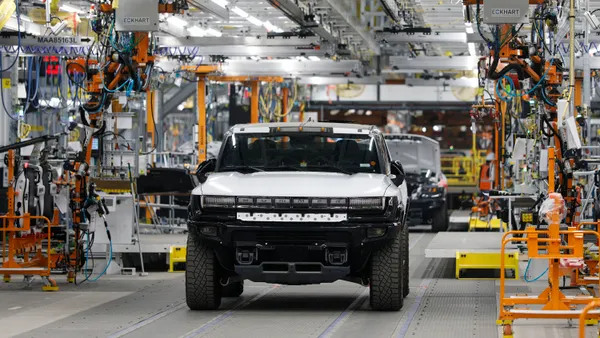Dive Brief:
- Supply chain professionals see hiring skilled workers as their biggest challenge, according to the most recent MHI Industry Report. This challenge has been the case for at least four years.
- "Companies continue to be severely hampered in their ability to implement digital technologies due to the shortage of workers with the necessary skills to run them," the report reads.
- Talent that possesses the skills necessary to make a digital transition may be hesitant to work for a company that doesn't already have a digital culture, MHI said.
Dive Insight:
The supply chain community is not alone in experiencing a digital skills gap. The technology industry added 146,383 workers between 2017 and 2018 for a total of 7.3 million employees, according to a report by CompTIA.
Companies have to fight for this tech talent as technology becomes more important in just about every sector. This gap between demand and supply could result in 2.2 million jobs going unfilled in the manufacturing sector alone, according to a report by Deloitte and The Manufacturing Institute.
The supply chain is already well into its journey to automate. Many warehouses are full of robots, large companies are looking to autonomous trucks for transporting goods and the industry is increasingly reliant on analytics for its day-to-day operations. But further adoption will rely on people that know how to implement these kinds of technologies, MHI said in its report.
"Whether that requires bringing in new talent or offering additional training to the existing workforce, expanding the company’s skill base will remain a top priority for the foreseeable future," the report said.
And it isn't just technology where the supply chain has struggled. Recruiters have said they struggle when looking for workers in the warehouse and in trucking.
There are some steps companies can take to address this gap. MHI suggests employees engage with other departments, enabling various skills to be shared throughout the company. It points to "reverse mentoring" as one way to achieve this, where more professionals who have been in the business longer could "benefit from the younger professionals who have grown up with using digital technologies," according to the report.
This story was first published in our weekly newsletter, Supply Chain Dive: Operations. Sign up here.














